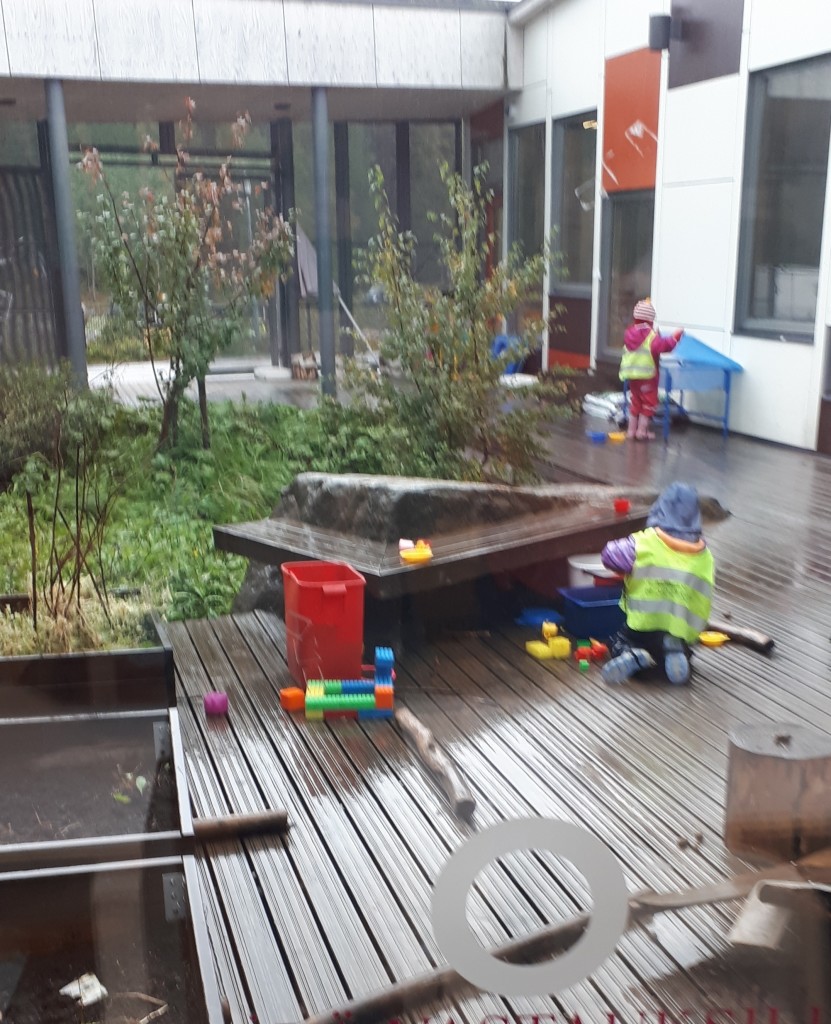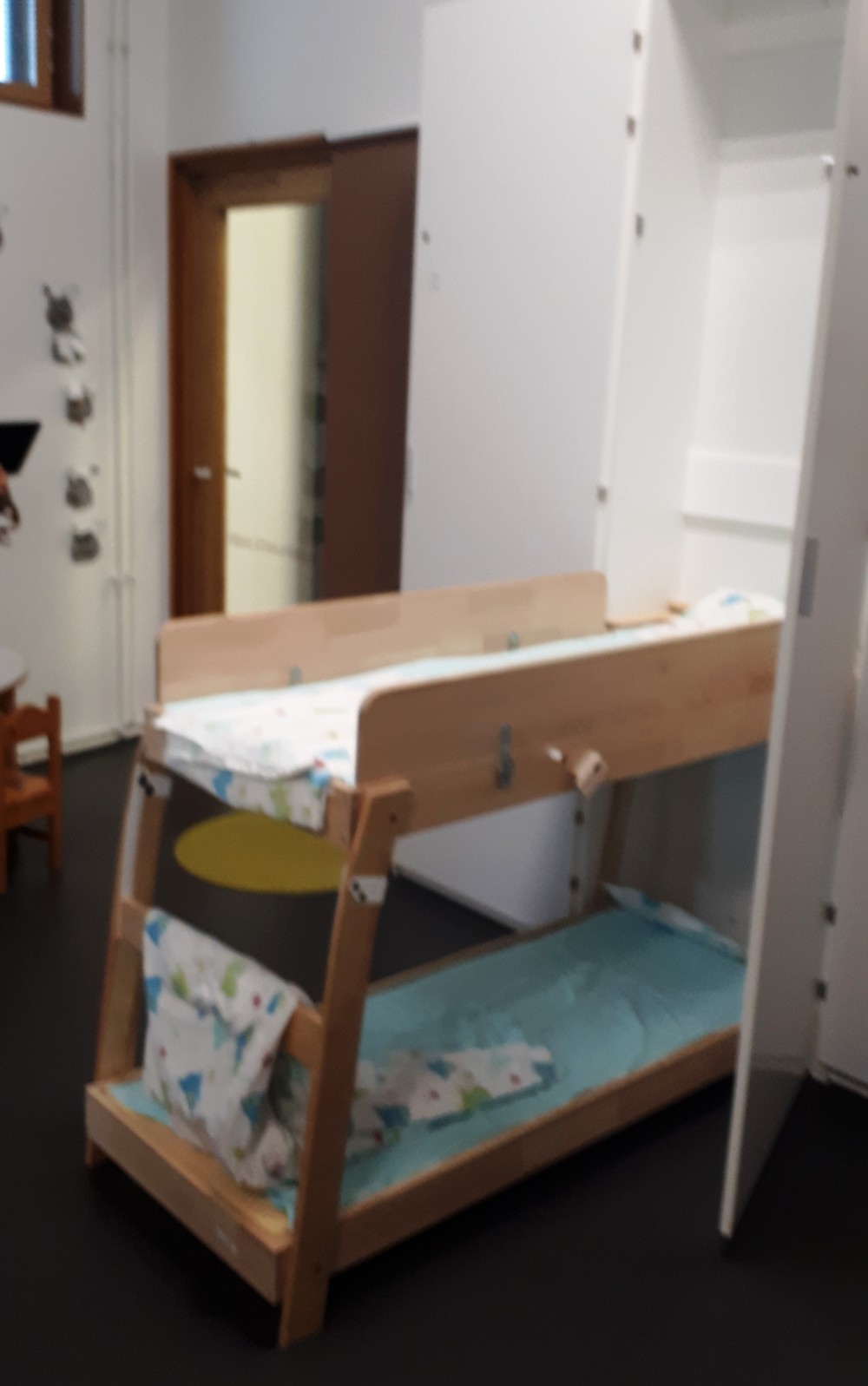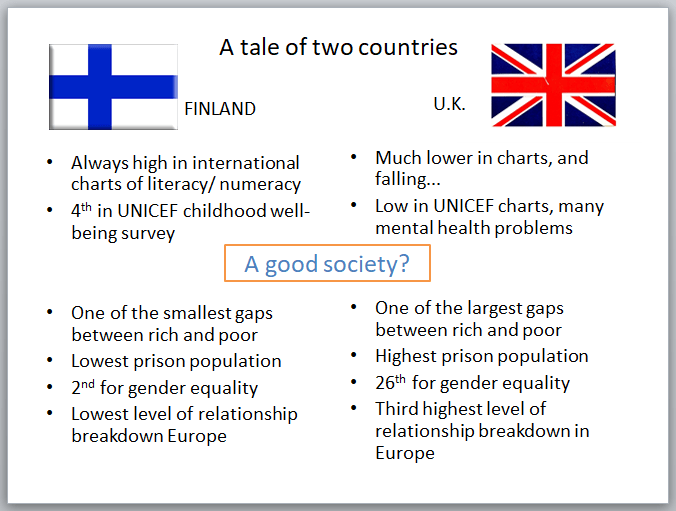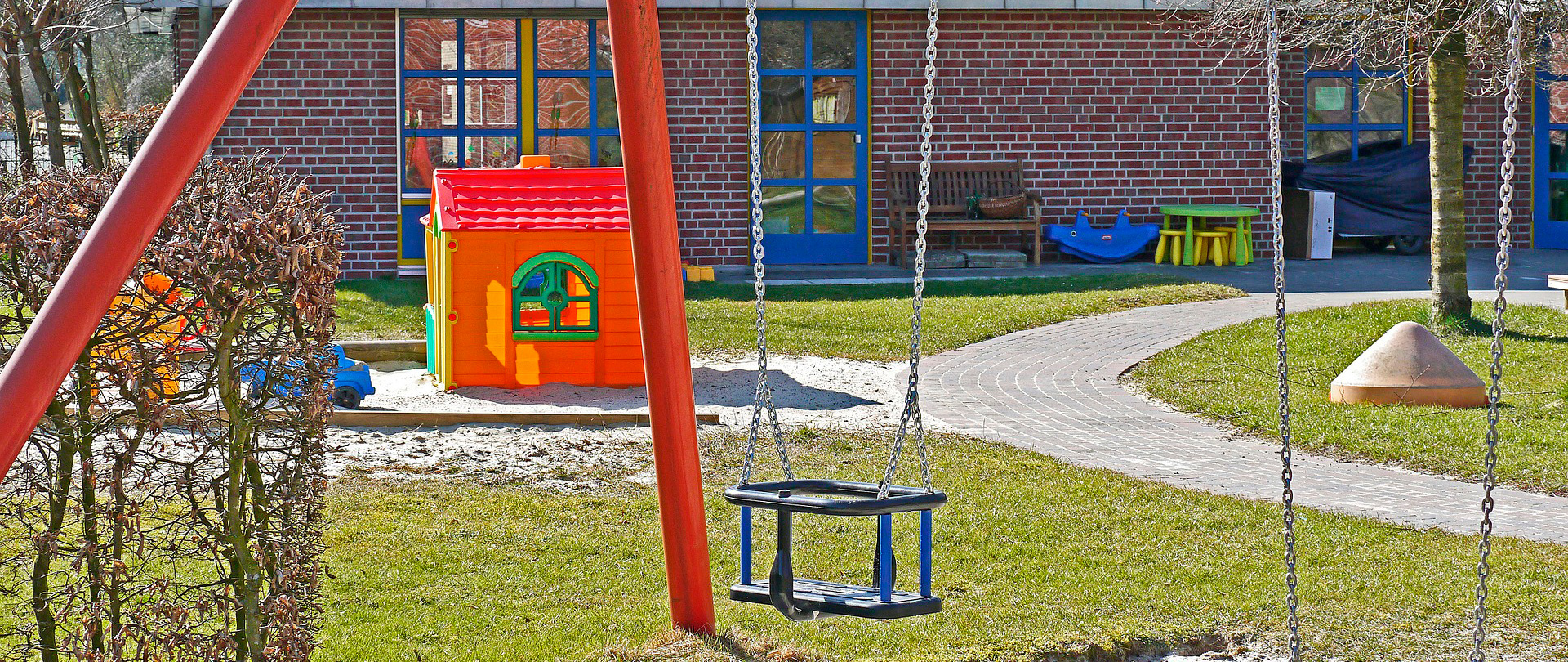
Thanks to Children in Scotland’s latest study tour, I spent a couple of days at the beginning of October visiting Finnish Day Care Centres. This was a wonderful experience and gave me the feeling: ‘Yes, it can be done!’
Then I returned to a country where the government is still planning to test five-year-olds in literacy and numeracy (despite a parliamentary vote to the contrary) and, due to funding problems around the 1140 hours expansion, there are claims from pre-school providers that in many local authorities the system will soon ‘implode’.
It is all so depressing. Why is there such a difference? I reckon the word ‘system’ is at the heart of it. Cultural attitudes to ‘systems’ in Finland and Scotland are worlds apart…
The Finnish culture of trust
The Finnish system of Early Childhood Care and Education (ECCE) is built on the principle of ‘educational equity’. The main driver of policy is children’s well-being and the aim is to achieve this through ‘a culture of trust’. So everything works on the assumption that all adults concerned – including parents, ECCE practitioners and local politicians who decide on the details of policy – are trusted to put children’s well-being at the heart of all they do.


The state kicks off the process by ensuring the workforce is well-prepared for the task (at least a third of staff must have an education degree and the rest must have higher educational qualifications in social work or childcare). High levels of professional knowledge mean the workforce is well-informed enough to trust the children in their care to develop basic skills and capacities without overt ‘teaching’. They know that young children are naturally primed for healthy development through two vital environmental ingredients: warm personal relationships with adult carers and opportunities to learn through play.When central government, municipalities (the Finnish name for local authorities) and ECCE workforce all trust each other – and thus feel free to trust children – parents and the general public trust in the system too.
The Scottish culture of control
Scotland’s education system also aims at ‘excellence and equity’. We believe in ‘getting it right for every child’ and aspire for our country to be ‘the best place in the world to grow up’. But we haven’t kept up to speed with neuroscience and evolutionary biology. Our system is still stuck in 20th century ’top-down’ educational theory – which has led to increasingly centralised control, based on the provision of copious documentary advice and guidance, backed up by similarly copious measurement and accountability procedures.
This bureaucratic national regime is reflected in local authorities, which also sometimes engage in frightening levels of control freakery. It is little wonder that the ECCE workforce (many of whom have minimal qualifications) feels increasingly besieged, disempowered and disaffected as it tries to shoulder an insupportable bureaucratic burden.
There’s little time available in Scotland for practitioners to develop warm personal relationships with children and parents. And – as five-year-old children are now expected to achieve aspirational ‘benchmarks’ in literacy and numeracy – there isn’t much time for learning through play either.
How Finland has built firm foundations
 Of course, Finland isn’t Scotland. It has a different history and has developed a very different social contract. However, half a century ago Finland was in a mess – socially, economically, politically – and somehow had to sort themselves out. I was told by a Finnish politician that, during those dark days, they decided the best way to achieve a ‘good society’ was to ‘to do our best for our little children’. Since then, Finland has – slowly but surely – developed its trust-based system of universal ECCE.
Of course, Finland isn’t Scotland. It has a different history and has developed a very different social contract. However, half a century ago Finland was in a mess – socially, economically, politically – and somehow had to sort themselves out. I was told by a Finnish politician that, during those dark days, they decided the best way to achieve a ‘good society’ was to ‘to do our best for our little children’. Since then, Finland has – slowly but surely – developed its trust-based system of universal ECCE.
They now have a generous parental leave policy and a ‘home care allowance’ which finances families to care for their own children at home till the age of three. As in Scotland, most parents now want to work or study, so they’re entitled to trade in home care for day care and most children over the age of two attend a Day Care Centre for at least part of the week until they’re seven (when school starts). 85% of day care costs are covered by state-funding. Parental contributions for the remaining 15% are on a sliding scale related to income (we were told it is at most around 120 euros a week). The centres I visited last week are open from 7 a.m. till 4 p.m. and provide children with breakfast, a hot healthy lunch and an afternoon snack. The adult to child ratios are 1:4 for the under-threes and 1:8 for the under-7s (in Espoo, a municipality just outside Helsinki, it’s 1:7) – and the adults’ main purpose is to form ‘warm personal relationships’ with the children and ensure they have as many opportunities as possible to learn through play.
The centres I visited last week are open from 7 a.m. till 4 p.m. and provide children with breakfast, a hot healthy lunch and an afternoon snack. The adult to child ratios are 1:4 for the under-threes and 1:8 for the under-7s (in Espoo, a municipality just outside Helsinki, it’s 1:7) – and the adults’ main purpose is to form ‘warm personal relationships’ with the children and ensure they have as many opportunities as possible to learn through play.
The centres are amazingly spacious, well-resourced and awash with rich opportunities for children’s active, self-directed play with at least two hours a day spent outdoors. There’s also provision for a postprandial rest on dinky little bunk-beds (tucked away for most of the day in cupboards). The wee ones usually nap for an hour or so, the older ones just lie quietly while someone reads them a story.
No child is expected to read and write under the age of seven but if they show an interest (and there are plenty of stimuli to encourage interest) they’re supported at their own developmental level. Most are well on the way to being literate by the time they start school, just as – through lots of context-based activities – they’re well-versed in basic numeracy skills.
Of course, the system isn’t perfect (our study group found plenty to question, and we were shown surveys of teenagers’ school experiences that were giving child welfare workers cause for concern). Finland also is currently struggling to support an increasing number of immigrant families, many of whom are severely traumatised after arduous escapes from war zones. But it does seem that ‘doing our best for our little children’ has led to a rather better society than ours.
How Scotland can start putting things right
Switching from a culture of control to a culture of trust isn’t easy. But if the movers and shakers of Scottish policy-making really do believe in ‘excellence and equity’, ‘getting it right for every child’ and making Scotland the best place in the world to grow up, here are two suggestions for getting started:
1) Make children’s well-being the key driver in nursery expansion plans
Unlike Finland, Scotland has a mixed childcare economy but that shouldn’t make any difference to the underpinning principle that high-quality ECCE starts with the well-being of every child. The needs of the private and voluntary sector in providing for children’s well-being must be considered on a par with those of the state sector. At present, this isn’t happening, with potentially disastrous results in the long term (see this recent piece from Nursery World).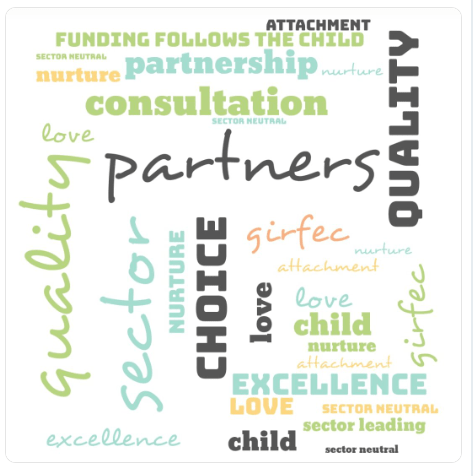
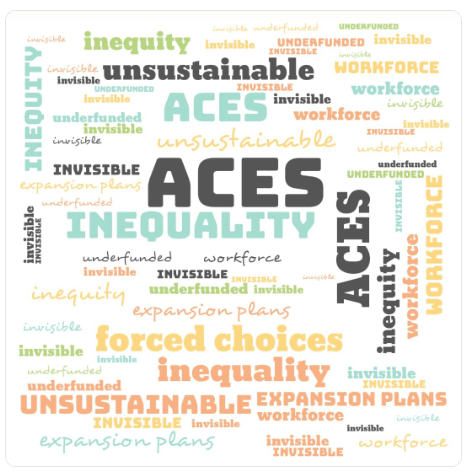
2) Drop the P1 tests of literacy and numeracy
The Early Level of Curriculum for Excellence gives P1 (and P2) teachers permission to follow a play-based curriculum and, in recent years, some schools have begun putting this into effect. But the introduction of SNSA testing, linked to benchmarks for achievement in literacy and numeracy, pulls P1 teachers in exactly the opposite direction. As long as the tests remain, we’ll be trapped into out-dated, counter-productive approaches to early years education.
So we plead with the Scottish Government to listen to Upstart’s case against testing P1 children in literacy and numeracy, and trust the professional expertise of the ‘Play Not Tests’ coalition, which includes the Educational Institute of Scotland, the parent-teacher organisation Connect, Play Scotland, Children in Scotland, ACE-Aware Nation and many others. Sadly, the Cabinet Secretary for Education’s current distrust of anyone arguing against the tests means he won’t even bow to the will of the Scottish parliament on the issue.
There is, however, huge grassroots support for both these propositions. If Scottish policy-makers could embrace the two shifts in mind-set (no matter how difficult in terms of bureaucracy or political image) they would find a great many of the electorate cheering them on.


